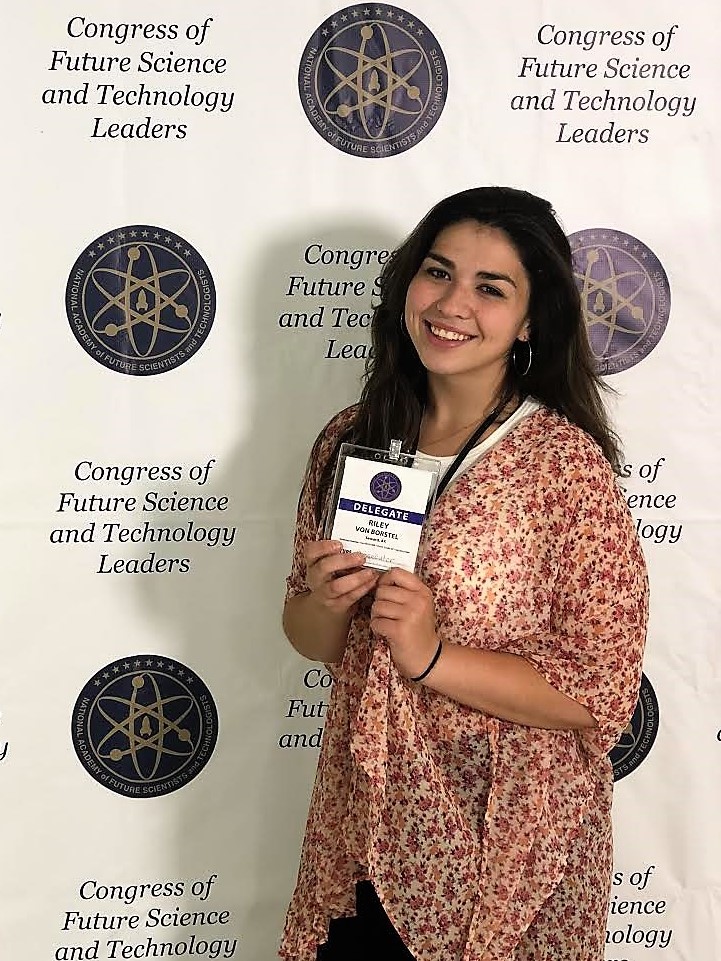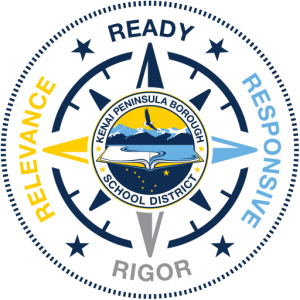Sep 18
4
Celebrate STEM leader, student Riley von Borstel
KPBSD celebrates #STEM leader Riley von Borstel, Seward High School, Alaska, who participated in the Congress of Future Science and Technology Leaders in Lowell, MA, June 29 – July 1, 2018.
Winner of a Nobel Prize in Physics, and Science Director of the National Academy of Future Scientists and Technologists, Dr. John C. Mather nominated Riley von Borstel to represent Seward High School based on her academic achievement, leadership potential and passion for science and technology.
Dr. John C. Mather, winner of the Nobel Prize in Physics and Science Director of the National Academy of Future Scientists and Technologists nominated Riley von Borstel to represent Seward High School based on her academic achievement, leadership potential and passion for science and technology.
“Among the many problems in today’s world one that really catches my attention is climate change,” said von Borstel. “We are beginning to see frequent negative changes in our environment—much quicker than ever before. I am not necessarily interested in environmental studies, but I am interested in the wellbeing of our future as a society. I think that as a society, we need to discover new, greener methods that would be kinder to our planet than what we are currently doing.”
The Congress is an honors-only program for high school students who are passionate about science, technology, engineering, or mathematics (STEM). The purpose of this event is to honor, inspire, motivate and direct the top students in the country who aspire to be scientists and technologists, to stay true to their dream and, after the event, to provide a path, plan and resources to help them reach their goal.
“I was inspired by my driven peers and the motivational speakers to get a jump start on my future and lay out a plan for my senior year; it was truly inspiring to be around thousands of different students from all across the United States who all had similar morals and priorities,” said von Borstel.
During the three-day Congress, Riley von Borstel joined students from across the country and heard Nobel Laureates and National Medal of Science recipients talk about leading scientific research; was given advice from deans of the world’s top tech universities; be inspired by fellow teen science prodigies; and learn about cutting-edge advances and the future of science and technology.
“This is a crucial time in America when we need more nimble-minded and creative scientists and technologists who are even better prepared for a future that is changing exponentially,” said Richard Rossi, Executive Director, National Academy of Future Scientists and Technologists. “Focused, bright, and determined students like Riley von Borstel are our future and she deserves all the mentoring and guidance we can give her.”
The Academy often offers free services and programs to students who have the desire to learn more about their future in science and technology. Some of the services and programs the Academy offers include online social networks through which future scientists and technologists can communicate; opportunities for students to be guided and mentored by tech and science leaders; and communications for parents and students on college acceptance and finances, skills acquisition, internships, career guidance, and much more.
The academy was founded on the belief that science, technology, engineering and mathematics (STEM) education plays a critical role in enabling the United States to remain the economic and technological leader of the global marketplace of the 21st century and that we must identify prospective talent at the earliest possible age and help these students acquire the necessary experience and skills to take them to the doorstep of vital careers. Based in Washington D.C. and with an office in Boston, MA, the Academy was chartered as a nonpartisan, taxpaying institution to help address this crisis by working to identify, encourage and mentor students who wish to devote their lives to advances in society as scientists, technologists, engineers, and mathematicians.

